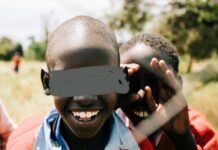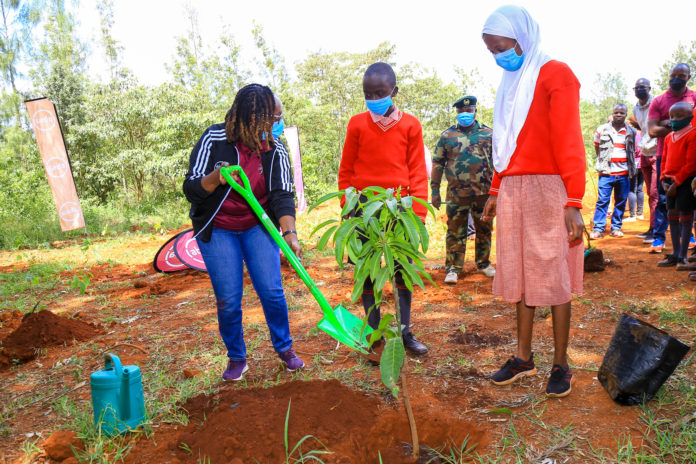
By Clifford Akumu
Nairobi County, Kenya: A throng of fifth-graders crowded around dug holes on the grounds of Cheleta Primary School, Nairobi County in the early morning of Tuesday.
The more than 20 children split into groups of three or four were ready for a fruit tree planting exercise organized by Absa Bank Kenya PLC and partners. In those holes, they planted several grafted apple mango, avocado, orange fruit trees-which together will form a school orchard.
Angel Shasha, 10, a fifth-grader beamed with joy as she reached down, scooping a mound of soil and watered an avocado seedling.
Like other pupils from Cheleta, she will adopt the avocado fruit tree seedling until its maturity; regularly monitoring its growth until it forms edible fruits.
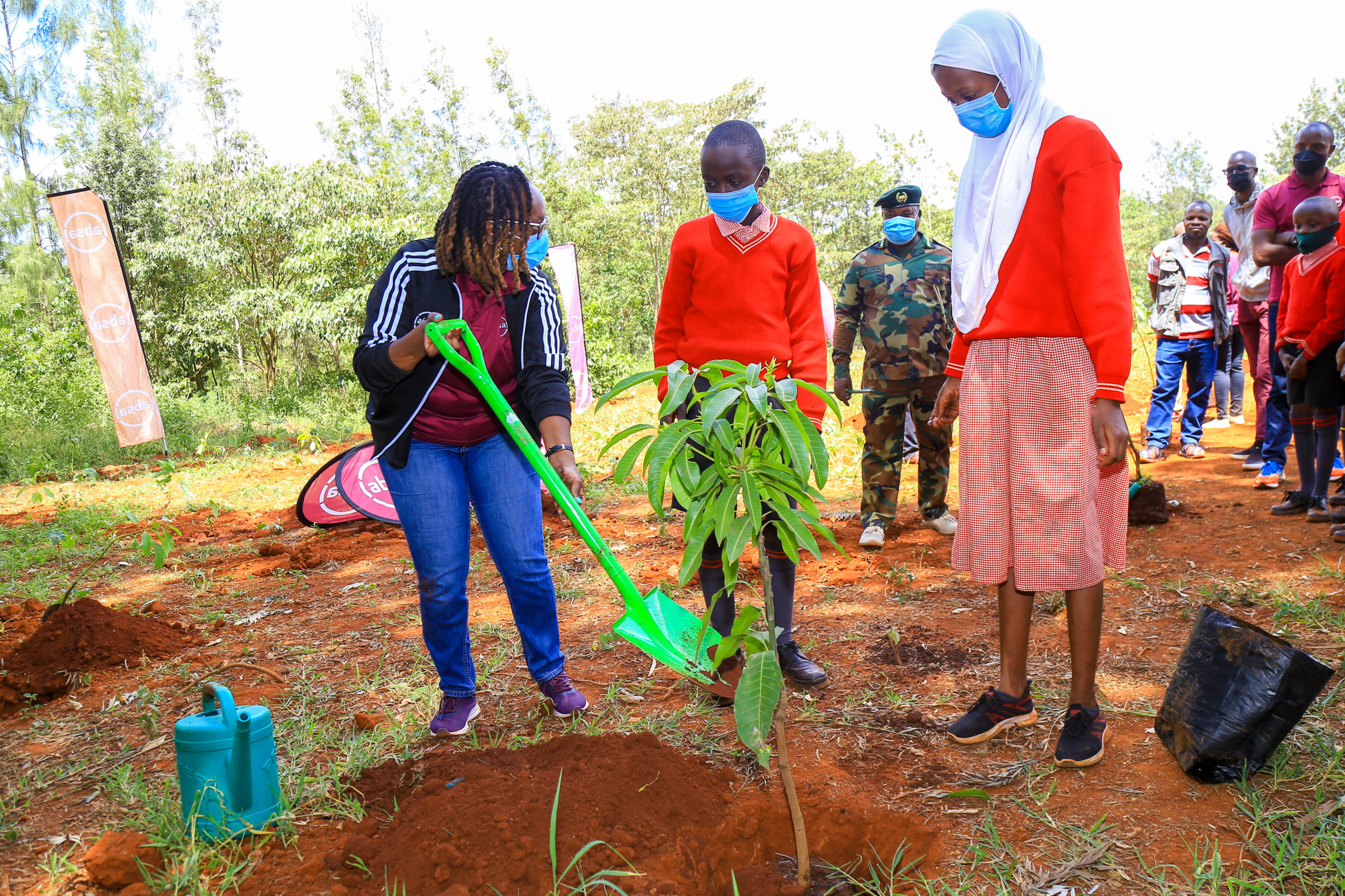
Shasha, an active member of the School’s 4K club, has developed a keen interest in environmental conservation. She adds that ‘adopting a fruit tree’ is a responsibility that has come at the right time.
Shasha will now form part of an ambitious plan by the bank to plant 10,000 fruit trees in several schools across Kenya to tackle the effects of climate change and nutrition insecurity for school-aged children.
The Bank recently rolled out its Birdies for Good initiative as part of the 2022 Magical Kenya Open that will raise funds towards planting the fruit trees.
`“I’m happy to be part of the fruit tree planting process. It will now help me to practically take care of our environment,” a bubbly Shasha said.
She learned that day that “digging is hard” and also that by the time the trees produce edible fruit, she will be in middle school. But the wannabe pediatrician said that’s okay.
Growing fruit trees, said Jane Waiyaki, Absa Bank’s Head of Sustainability, “Will help improve our country’s tree cover while also assisting in improving national nutrition security, particularly among school-aged children,” said Ms. Waiyaki during the launch of the initiative recently in Cheleta Primary.
She noted that with fruits available in the school compound, they can easily supplement their school feeding program at a lower cost.
It will also go a long way in teaching the children about nutrition, climate change and agriculture, added Ms. Waiyaki.
As part of the initiative, the bank announced that for every birdie (a golf score of one stroke less than par on a hole) scored at the 2022 Kenya Magical Open, it will plant and grow additional fruit trees in several schools.
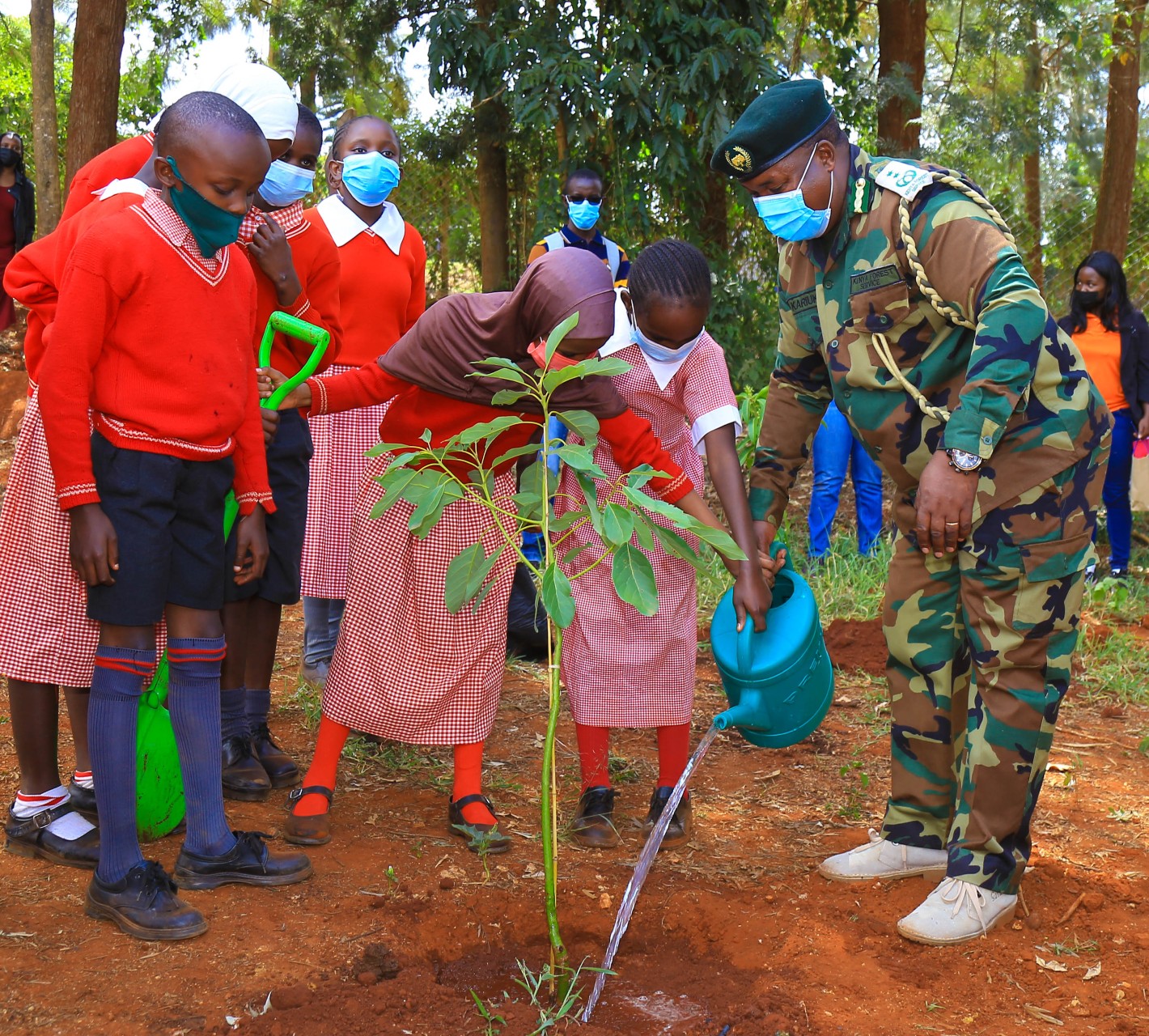
The Birdies for Good initiative, now in its second year, will donate Ksh 1,200 to plant and grow additional fruit trees in Kenyan schools this year over and above the 10,000 trees commitment. Absa hopes to raise at least Ksh 6 million through this initiative.
Ms. Waiyaki noted that investing in the entire ecosystem is vital at a time when climate change is taking its toll on forest cover.
“We want to make a difference in people’s lives beyond the tournament, and the Birdies for Good initiative exemplifies this commitment. As a result, we challenge the golfers to bring their best game to the tournament and be a part of impacting our community through their scores,” Ms. Waiyaki said adding the lender is committed to planting 10 million trees in the next five years.
Kenya is rushing against time to meet the 10 percent forest cover target by this year. The country’s forest cover stands at 7.2 percent and there have been several initiatives to uptick the percentage.
Mr. Francis Kariuki, Head of Nairobi Forest Conservancy, Kenya Forest Service said that nature conservation is critical in the fight against climate change.
“Whatever tree we plant today will go a long way to assist towards the country’s goal of 10 percent forest cover by 2022. We need everybody in this country to contribute to environmental conservation. It can only become better with the target if everyone is active in tree planting activities,” Mr. Kariuki noted.
Kariuki added that planting trees will help secure the future, lives, and livelihoods of our children and their children. He called on other stakeholders to join the initiatives noting, “Protecting and conserving our environment is a shared responsibility”
“We want to encourage other stakeholders to invest in tree planting and growing. We need to conserve what is already there and even increase it to be able to strike a balance in the ecosystem.”
Mary Kimani, Headteacher Cheleta Primary School while lauding the initiative noted, “As a school that neighbors urban green space of Karura Forest, we are very passionate about environment conservation. We commit that the fruit trees we plant today will be taken care of and nurtured until maturity.”
“Our learners will interact with fruit trees. The pupils can walk into the orchard and enjoy the fruits.”
Shasha said she has planted flowers before, but not trees or fruit trees.
“I feel excited because it’s my first time and I want to make sure my avocado grows healthy,” said Shasha, who would like to become a Pediatrician in the future.
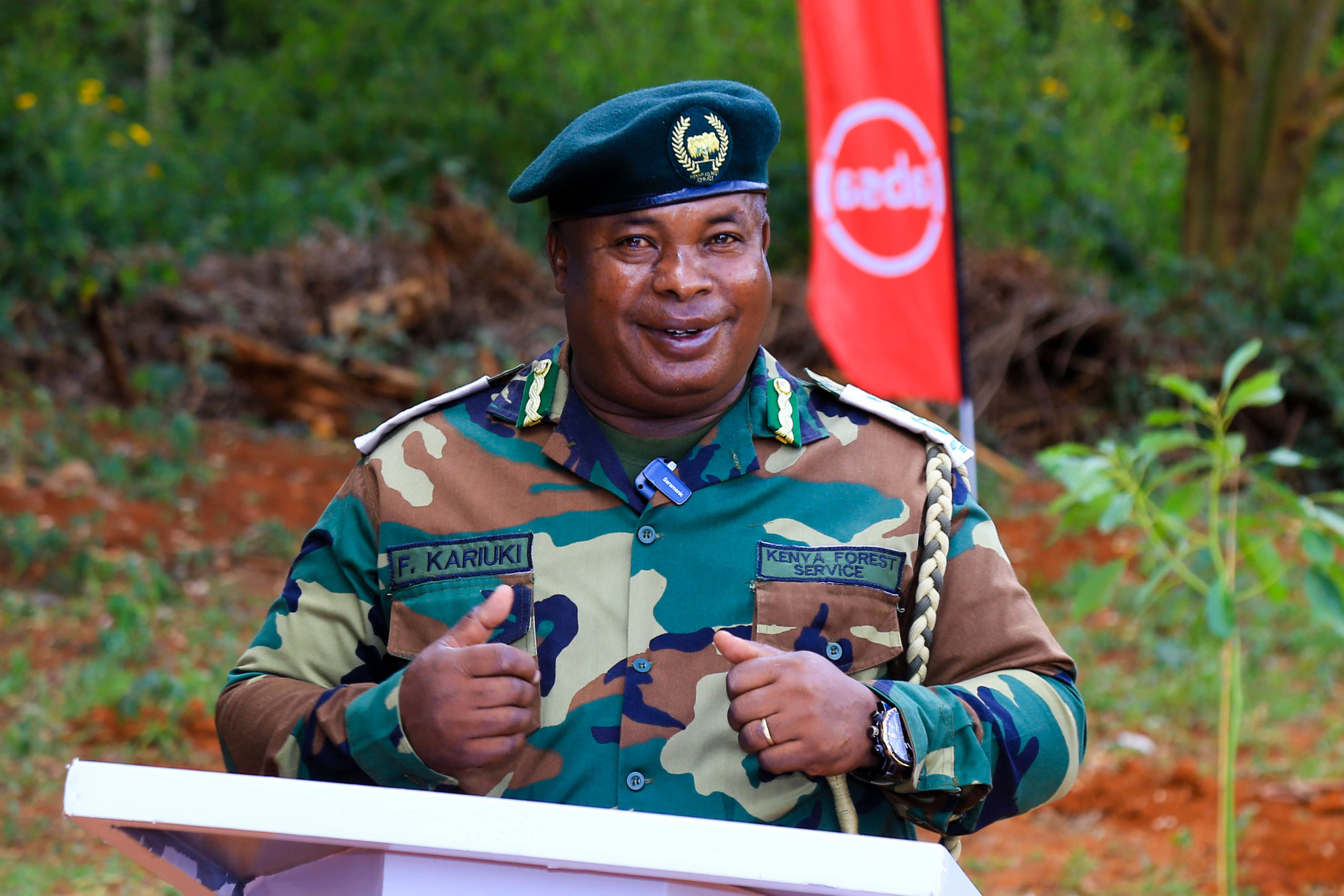
Like many city schools, Shasha said most of her friends eat a lot of processed food. She is happy they are going to grow fruits so that they would be more interested in eating them
Mr. Kariuki stressed the need to label and include the medicinal aspects of the trees planted in the orchard to create awareness among learners.
“I urge the school to create a medicinal tree section to help the learners grasp the values of some of the indigenous tree species. The labeling process will be carried out in conjunction with officials from friends of Karura Forest, Kenya Forest Service, Absa Bank Plc, and Cheleta Primary School.
There is a need for further engagement with other stakeholders to help in monitoring the growth of the trees as part of sustainability.
“Fruit trees are very demanding in terms of nutrients to help them in faster growth. We will need to top-dress and apply manure to power their maturity,” said Mr. Kariuki.
The Birdies for Good initiative, launched during the 2021 Magical Kenya Open, raised 8 Million Ksh for long-term community development projects. A women’s bead-making enterprise, tree planting, and the distribution of sanitary pads to schoolgirls in Laikipia, Isiolo, and Samburu counties were among those who benefited.


